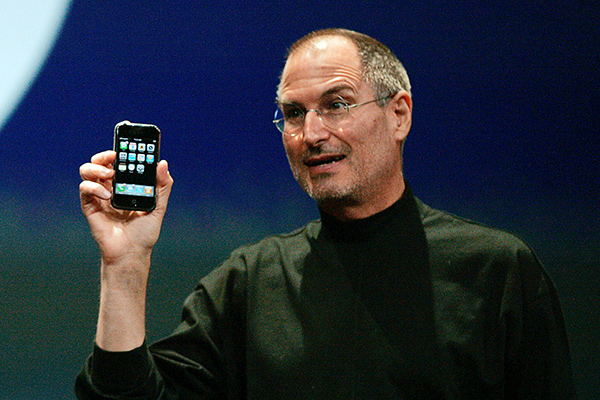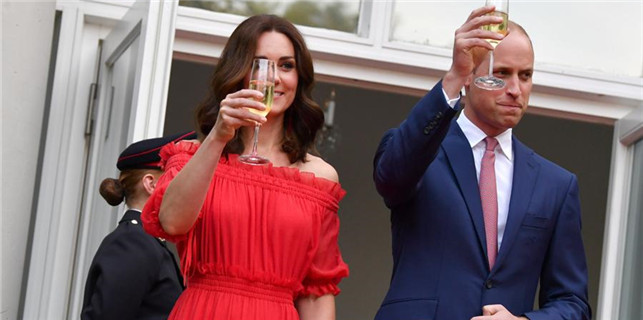Apple founder Steve Jobs is the subject of a new opera
 |
|
File photo shows Apple Computer Inc Chief Executive Officer Steve Jobs holds the new iPhone in San Francisco, California January 9, 2007. [Photo/Agencies] |
SANTA FE, N.M. — It's 2007, and Steve Jobs has just finished launching the first iPhone before an enraptured audience when he nearly collapses, exhausted by the illness that will kill him four years later.
At this moment in Mason Bates' opera "The (R)evolution of Steve Jobs," a harrowing sound emerges from the orchestra pit, a crushing downward progression that's described in the score as an "electronic shutdown.""It's a combination of a stand-alone synthesizer with the actual sound on the old Macs of hard drives turning off — and one in reverse booting up," Bates explained in an interview last week at the Santa Fe Opera, where his work will have its world premiere on Saturday.
"That moment is the realization of his mortality, so I wanted to have that kind of shutdown sound," Bates said. "Even if you can't recognize it, it adds a little authenticity that the guy who is the subject of this opera is the creator of some of the devices we're hearing."Bates, 40, enjoys a growing reputation for orchestral scores that combine traditional instrumentation with electronics. Appropriately for the subject of the opera, he composes on two Apple computers, which he will "play" during performances to launch sounds and rhythms at just the right moment.
As an innovator in how music communicates, Bates said he became fascinated by the idea of an opera about Jobs, "the man who changed the way we all communicate."He approached librettist Mark Campbell and they agreed on a framework for the piece. In 18 scenes, the opera hopscotches back and forth through Jobs' adult life from 1973 to 2011, with a prologue and epilogue that bookend the story in 1965 in the garage of his boyhood home.
Campbell said he rejected the idea of a straight linear progression because "I wanted to place events the way the mind recalls them. We don't remember things chronologically, we connect them emotionally."He and Bates also agreed the opera would neither glorify nor vilify Jobs, a genius innovator but flawed human being who long refused to acknowledge a daughter born out of wedlock and drove his employees — and himself — ruthlessly.
The opera unfolds in a single act of about 90 minutes, in Campbell's words, "as quick and streamlined as the technology Jobs created." This sense of fleetness is reinforced by the production, directed by Kevin Newbury, which uses rectangular screens with projected images that move about the stage for seamless scene changes.
















